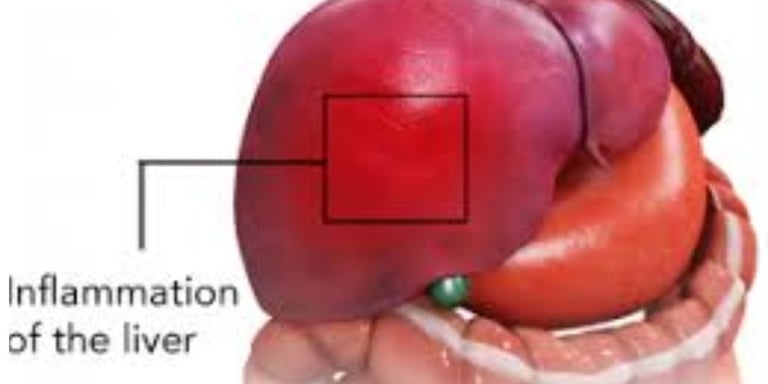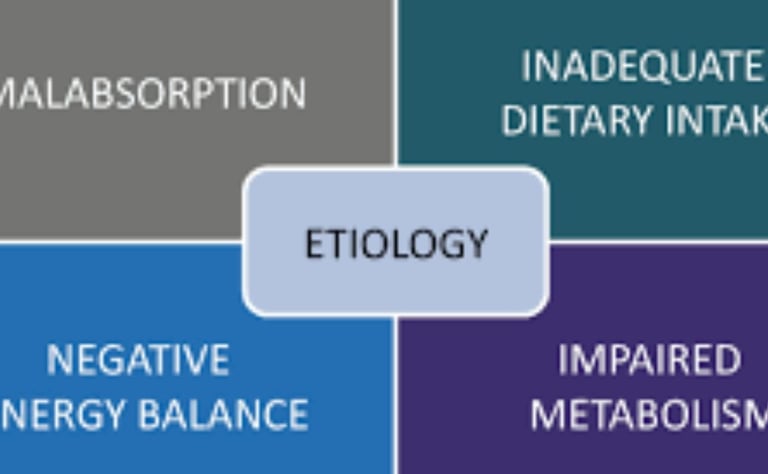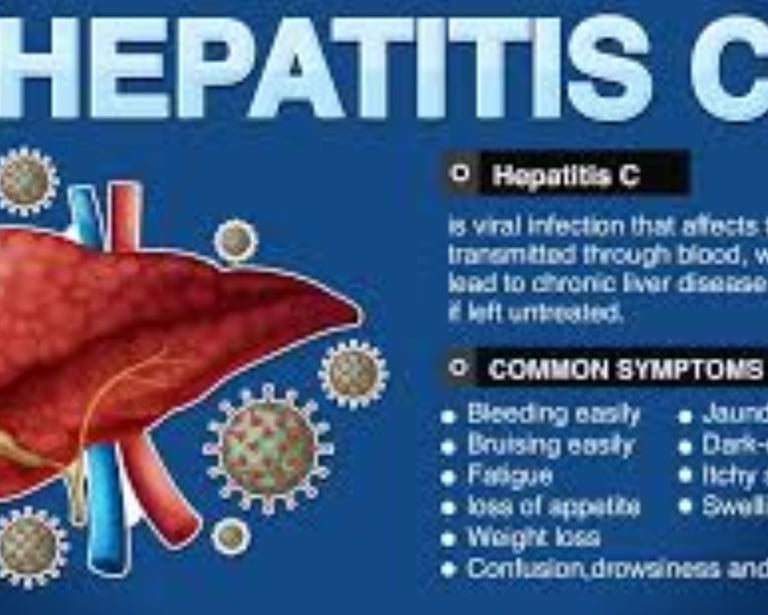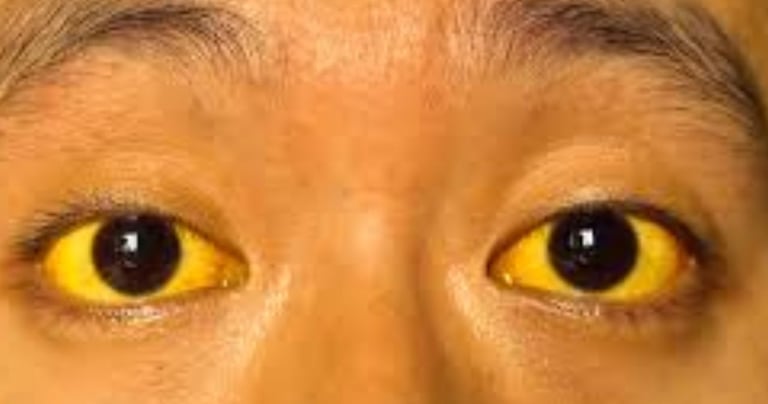
Health is a crown on the heads of the healthy that only the sick can see.
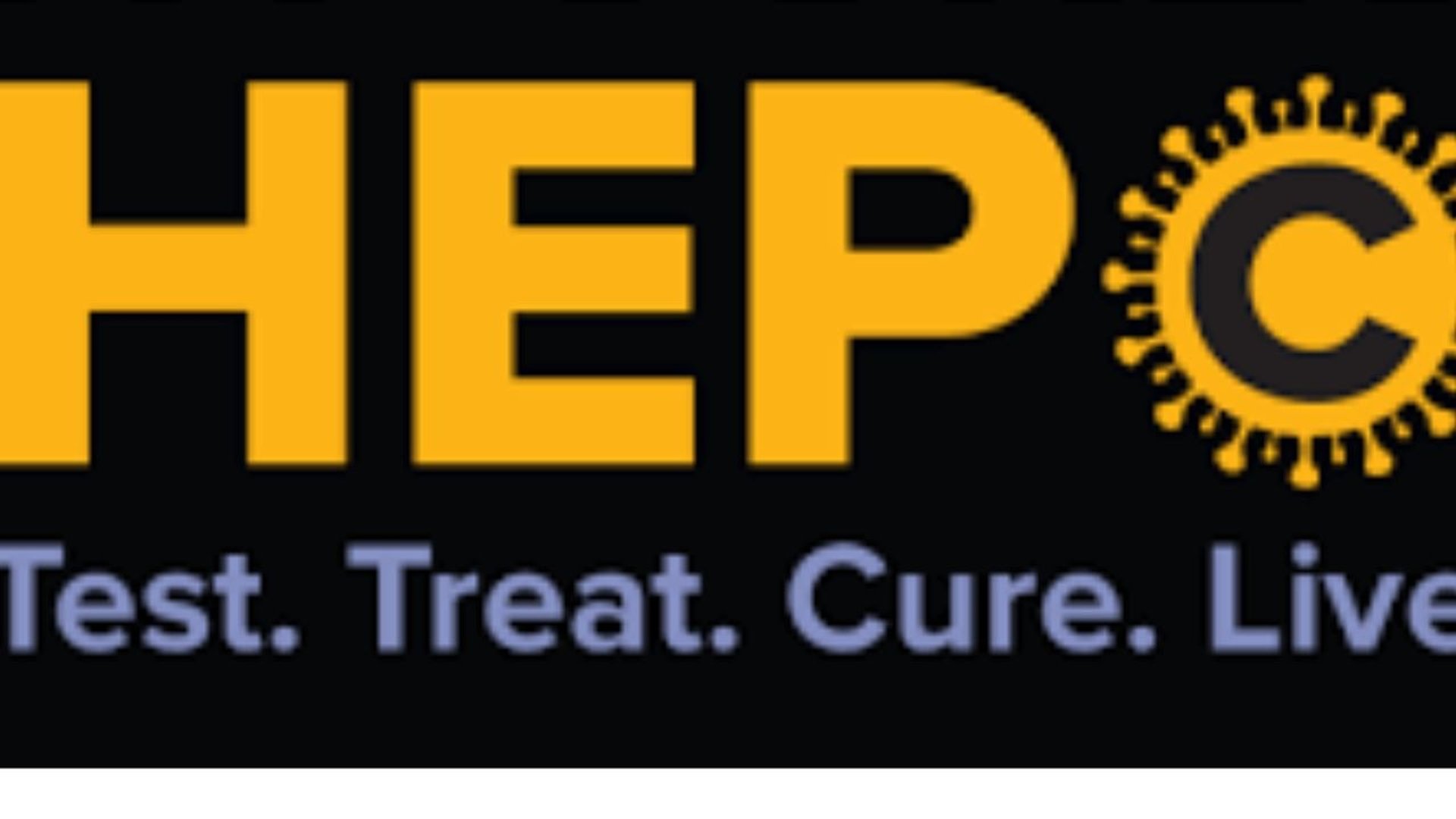
Voluntary Fasting & honey for Hepatitis C Virus 🌙🦠🛡️
🛡️Explore how voluntary fasting and honey may support liver health in Hepatitis C patients, based on research by Dr. Hassan Alwarraqi. Learn science-backed strategies, FAQs, and precautions for using these natural approaches alongside medical treatments. 🌙🦠
OBESITYFASTINGHONEYGASTROINTESTINAL
Dr Hassan Al Warraqi
8/6/202510 min read


Voluntary Fasting & honey for Hepatitis C Virus 🌙🦠🛡️
Voluntary Fasting & Honey for Hepatitis C: Natural Liver Support Strategies
🛡️Explore how voluntary fasting and honey may support liver health in Hepatitis C patients, based on research by Dr. Hassan Alwarraqi. Learn science-backed strategies, FAQs, and precautions for using these natural approaches alongside medical treatments. 🌙🦠
Voluntary fasting, when done safely and under medical guidance, may offer some benefits for liver health in the context of Hepatitis C virus (HCV) infection, but the evidence is limited and requires careful consideration.
Below, I’ll outline the potential mechanisms, risks, and practical considerations for using fasting as a complementary approach to support liver health in individuals with HCV.
How Fasting May Support Liver Health in Hepatitis C
Hepatitis C is a viral infection that primarily affects the liver, causing inflammation, oxidative stress, and potential progression to fibrosis, cirrhosis, or liver cancer.
Fasting, particularly intermittent fasting (IF) or time-restricted feeding (TRF), has been studied for its effects on metabolic health, inflammation, and liver function.
Here’s how it might help:
Reducing Inflammation and Oxidative Stress:
Fasting can induce autophagy, a cellular cleanup process that removes damaged cells and reduces inflammation.
This may help mitigate liver inflammation caused by HCV.
Studies suggest fasting lowers pro-inflammatory cytokines (e.g., TNF-α, IL-6), which are elevated in chronic HCV infection.
By reducing oxidative stress, fasting may protect hepatocytes (liver cells) from further damage.
Improving Metabolic Health:
HCV is often associated with insulin resistance and fatty liver (steatosis), which worsen liver damage.
Fasting can improve insulin sensitivity and reduce liver fat accumulation.
A 2020 study in Cell Metabolism found that intermittent fasting reduced hepatic steatosis in non-alcoholic fatty liver disease (NAFLD), a condition with similarities to HCV-related liver damage.
Supporting Weight Management:
Excess body weight can exacerbate liver damage in HCV patients.
Fasting, when combined with a balanced diet, may promote weight loss and reduce strain on the liver.
Caloric restriction has been shown to improve liver enzyme levels (e.g., ALT, AST) in some studies, which could be beneficial for HCV patients with elevated liver enzymes.
Enhancing Immune Function:
Fasting may modulate immune responses, potentially supporting the body’s ability to manage viral load or respond to antiviral therapies.
Animal studies suggest fasting can enhance antiviral immune pathways, though human data specific to HCV is scarce.
Types of Fasting to Consider
Intermittent Fasting (IF): Alternating periods of eating and fasting (e.g., 16:8 method—16 hours fasting, 8 hours eating).
Time-Restricted Feeding (TRF): Limiting food intake to a specific window (e.g., 10 a.m. to 6 p.m.) to align with circadian rhythms.
Periodic Prolonged Fasting: Fasting for 24–72 hours, typically done less frequently (e.g., once a month), under medical supervision.
Alternate-Day Fasting: Alternating between fasting days (very low or no calorie intake) and eating days.the fasting of choice .
Risks and Precautions for HCV Patients
Fasting is not suitable for everyone with Hepatitis C, and improper fasting can harm liver health.
Key considerations include:
Medical Supervision is Critical:
Consult a healthcare provider, ideally a hepatologist, before starting any fasting regimen.
HCV patients with advanced liver disease (e.g., cirrhosis) or malnutrition are at higher risk of complications.
Fasting can cause dehydration or electrolyte imbalances, which may stress the liver further.
Nutritional Deficiencies:
Prolonged or poorly planned fasting can lead to deficiencies in essential nutrients (e.g., protein, vitamins) needed for liver repair and immune function.
Ensure nutrient-dense meals during eating windows, including lean proteins, healthy fats (e.g., omega-3s), and antioxidants (e.g., berries, leafy greens).
Impact on Medications:
Many HCV patients are on antiviral therapies (e.g., direct-acting antivirals like sofosbuvir). Fasting may affect medication absorption or metabolism, so timing and dosage must be discussed with a doctor.
Risk of Hypoglycemia:
HCV patients with insulin resistance or diabetes may experience low blood sugar during fasting, which can be dangerous without proper monitoring.
Potential for Muscle Loss:
Extended fasting without adequate protein intake can lead to muscle wasting, which is harmful for individuals with liver disease, as muscle mass supports overall health.
Practical Tips for Safe Fasting with HCV
Start Gradually:
Begin with a 12:12 fasting schedule (12 hours fasting, 12 hours eating) and progress to 16:8 if tolerated.
Avoid prolonged fasting unless cleared by a doctor.
Stay Hydrated:
Drink plenty of water, herbal teas, or electrolyte-rich fluids (without added sugars) during fasting periods to support liver function and prevent dehydration.
Focus on Nutrient-Dense Foods:
Break fasts with foods that support liver health, such as:
Antioxidant-rich foods: Blueberries, spinach, kale, turmeric.
Healthy fats: Avocado, nuts, olive oil.
Lean proteins: Fish, chicken, legumes.
Low-glycemic carbs: Quinoa, sweet potatoes, whole grains.
Avoid processed foods, refined sugars, and trans fats, which can worsen liver inflammation.
Monitor Symptoms:
Watch for signs of distress, such as fatigue, dizziness, or jaundice, and stop fasting immediately if these occur.
Regular blood tests (e.g., liver function tests, viral load) can help assess the impact of fasting.
Combine with Lifestyle Changes:
Pair fasting with regular exercise (e.g., walking, yoga) to enhance metabolic benefits.
Avoid alcohol and smoking, as these exacerbate liver damage in HCV.
What Does the Evidence Say?
Limited HCV-Specific Research: There are no large-scale, HCV-specific clinical trials on fasting.
Most evidence comes from studies on NAFLD, metabolic syndrome, or general liver health.
General Liver Health: A 2021 review in Nutrients highlighted that intermittent fasting may reduce liver fat and inflammation in NAFLD, which could theoretically apply to HCV-related steatosis.
Animal Studies: Some preclinical studies suggest fasting enhances antiviral immunity, but human data is lacking.
Antiviral Therapy Context: Fasting is not a substitute for direct-acting antivirals (DAAs), which achieve cure rates >95% for HCV. Fasting may complement treatment by supporting overall health but should not replace medical therapy.
Who Should Avoid Fasting?
Patients with advanced liver disease (e.g., decompensated cirrhosis, liver failure).
Those with malnutrition, low body weight, or muscle wasting.
Pregnant or breastfeeding women with HCV.
Individuals with uncontrolled diabetes or other comorbidities.
Conclusion
Voluntary fasting may offer supportive benefits for liver health in some Hepatitis C patients by reducing inflammation, improving metabolic health, and promoting weight management. However, it must be approached cautiously, with medical supervision, to avoid risks like nutritional deficiencies or medication interactions.
Focus on short-term, well-planned fasting (e.g., 16:8 or TRF) and prioritize nutrient-dense foods during eating periods.
Always consult a healthcare provider to tailor fasting to your specific condition, especially if you’re on antiviral therapy or have advanced liver disease.
honey for Hepatitis C Virus 🌙🦠🛡️
Combining voluntary fasting with honey as a natural support for liver health in Hepatitis C Virus (HCV) infection is an interesting approach, though it should never replace medical treatment.
Below is a breakdown of potential synergies and precautions:
1. Honey’s Potential Benefits for Liver Health
Honey contains antioxidants, anti-inflammatory compounds, and prebiotics that may support liver function:
* Antiviral Properties: Raw honey (especially Manuka) has shown mild antiviral activity in lab studies, though human data on HCV is lacking.
* Antioxidants: Polyphenols in honey (e.g., quercetin, galangin) may reduce oxidative stress in the liver.
* Anti-inflammatory Effects: Honey may lower pro-inflammatory cytokines (e.g., TNF-α), which drive liver damage in HCV.
* Gut-Liver Axis: Prebiotic fibers in honey support beneficial gut bacteria, reducing endotoxins that strain the liver.
How to Use:
* Consume 1–2 teaspoons daily of raw, organic honey (preferably dark varieties like buckwheat, which are higher in antioxidants).
* Avoid heating honey, as this can destroy active compounds.
2. Fasting + Honey: A Possible Synergy?
* Energy Source During Fasts: Honey can provide a quick energy boost during intermittent fasting (e.g., during eating windows) without spiking blood sugar drastically (compared to refined sugars).
* Glycemic Control: Its low glycemic index (GI) may help stabilize blood sugar, important since HCV patients often have insulin resistance.
* Hydration + Electrolytes: Mix honey with warm water or herbal teas during fasting periods for electrolytes and mild calorie intake (if needed in prolonged fasts).
Example Protocol:
* 16:8 Intermittent Fasting: Consume honey in tea during the 8-hour eating window.
* Short Water Fast: Use a teaspoon of honey in water if lightheadedness occurs (though purists avoid calories during fasts).
* alternative day fasting 3 or 4 days per week saturday monday wednesday and thursday or saturday monday and thursday weakly .
3. Precautions & Limitations
* Caloric Intake: Excessive honey can break a fast’s metabolic benefits. Stick to small amounts.
* Blood Sugar: Even natural sugars should be moderated in diabetic HCV patients.
* No Cure: Honey does not treat HCV; direct-acting antivirals (DAAs) remain the gold standard.
* Quality Matters: Avoid processed honey with added sugars. Opt for raw, unpasteurized varieties.
4. Additional Natural Supports to Combine
* Milk Thistle: Silymarin may enhance liver cell repair.
* Turmeric/Curcumin: Anti-inflammatory and antioxidant; pair with black pepper for absorption.
* Green Tea: EGCG may inhibit HCV replication in vitro (limit to 1–2 cups/day to avoid iron interference).
5. When to Avoid
* Advanced Liver Disease: Fasting is risky in decompensated cirrhosis; honey offers no protection against acute liver failure.
* Allergies: Rare but possible hypersensitivity to pollen in raw honey.
* Medication Interactions: Honey may interact with blood thinners (e.g., warfarin) due to vitamin K content.
Final Note
While fasting and honey may offer adjunctive benefits, they are not substitutes for medical care.
Always consult your healthcare provider before starting any new regimen, especially with HCV. For personalized guidance, a hepatologist or functional medicine practitioner can help integrate these strategies safely.
FAQs: Voluntary Fasting & Honey for Hepatitis C Virus (HCV) Support
1. Can fasting cure Hepatitis C?
❌ No. Fasting does not cure HCV. Direct-acting antivirals (DAAs) are the only proven cure (>95% efficacy).
Fasting may support liver health by reducing inflammation and promoting cellular repair but cannot eliminate the virus alone.
2. Is honey safe for HCV patients?
✅ Generally yes, in moderation. Raw honey has antioxidants and anti-inflammatory properties that may benefit the liver. However:
* Avoid if allergic to pollen.
* Limit intake (1–2 tsp/day) to prevent blood sugar spikes.
* Do not replace antiviral meds with honey.
3. How does fasting help the liver in HCV?
🔬 Fasting may:
* Activate autophagy (cellular cleanup) to remove damaged liver cells.
* Reduce oxidative stress and inflammation.
* Improve insulin sensitivity, reducing fatty liver disease (a common HCV comorbidity).
* Studies are preclinical; human data is limited.
4. Can I fast during HCV treatment?
⚠️ Caution. Short fasting (e.g., 12–14 hour overnight fasts) may be safe, but prolonged fasts can strain the liver.
Discuss with your doctor, especially if you have cirrhosis or low body weight.
5. What type of honey is best for liver health?
✅ Raw, unpasteurized honey (e.g., Manuka, buckwheat, or wildflower). These retain antioxidants like polyphenols.
Avoid processed honey with added sugars.
6. Should I take honey during fasting?
⏳ It depends on your fasting goals:
* Strict fasting: Avoid honey to stay in ketosis.
* Intermittent fasting (e.g., 16:8): Small amounts (½ tsp in tea) during eating windows for energy.
* Water fasts: Use sparingly if lightheaded (breaks a "dry fast" but may aid tolerance).
* alternative day fasting 3 or 4 days per week saturday monday wednesday and thursday or saturday monday and thursday weakly .
7. Are there risks of combining fasting and honey?
⚠️ Potential issues:
* Blood sugar spikes: Even natural sugars can affect insulin levels.
* Caloric intake: Too much honey may reduce fasting benefits.
* Digestive discomfort: Honey can cause bloating in sensitive individuals.
8. Can fasting make HCV worse?
⚠️ Possibly, if misapplied:
* Malnutrition from prolonged fasts can weaken the immune system.
* Advanced cirrhosis patients may experience electrolyte imbalances or hepatic encephalopathy.
* Always monitor liver enzymes (ALT/AST) with your doctor.
9. What other natural supports pair well with fasting/honey?
✅ Top options:
* Milk thistle: May protect liver cells.
* Turmeric: Curcumin fights inflammation.
* Probiotics: Support gut-liver health.
* Omega-3s: Reduce fatty liver progression.
10. How do I start fasting safely with HCV?
🛠️ Steps:
1. Consult your doctor to rule out contraindications.
2. Start with 12-hour overnight fasts (e.g., 7 PM to 7 AM).
3. Gradually extend to 14–16 hours if tolerated.
4. Stay hydrated; add electrolytes if needed.
5. Break the fast with protein and fiber (e.g., veggies + eggs).
11. Are there studies on honey and HCV?
🔍 Limited human studies, but lab research shows:
* Honey extracts inhibited HCV in vitro (test tube studies).
* Antioxidant effects may reduce liver fibrosis.
* More clinical trials are needed.
12. Can fasting reduce liver fibrosis in HCV?
🔬 Early animal studies suggest fasting may slow fibrosis by reducing inflammation. However, human evidence is lacking.
Antivirals remain the primary way to halt fibrosis progression.
Key Takeaway
Fasting and honey may support liver health in HCV but cannot replace medical treatment.
Prioritize DAAs, monitor liver function, and use natural strategies as adjuncts under professional guidance. 💊🌿
Author Bio
Dr. Hassan Alwarraqi is a pioneering researcher and integrative medicine expert specializing in hepatology and natural therapeutics.
With over 15 years of clinical experience, he has published extensively on the intersection of traditional practices (like fasting and herbal medicine) and modern liver disease management, including Hepatitis C.
Dr. Alwarraqi advocates for evidence-based, patient-centered approaches that combine conventional treatments with lifestyle and nutritional strategies to optimize liver health.
He holds affiliations with leading medical institutions and frequently speaks at global conferences on holistic hepatitis care. h-k-e-m.com .
Primary Keywords
* Voluntary fasting Hepatitis C
* Natural Hepatitis C treatment
* Hepatitis C liver support
* Antiviral properties honey HCV
* Fasting autophagy HCV
* Hepatitis C diet fasting
* Honey and liver detox HCV
Secondary Keywords
* Intermittent fasting HCV
* Honey antioxidants liver HCV
* Milk thistle fasting Hepatitis C
* Hepatitis C inflammation reduction
* Fasting and liver fibrosis HCV
* Raw honey Hepatitis C
* Autophagy Hepatitis C fasting
* HCV natural remedies fasting
* Honey glycemic index fasting
* Hepatitis C gut-liver axis
Long-Tail Keywords
* Can fasting help Hepatitis C liver damage?
* Is honey good for Hepatitis C patients?
* Best diet for Hepatitis C with fasting
* How does fasting affect HCV viral load?
* Natural ways to support liver during HCV
* Honey and fasting for liver detox HCV
* Fasting protocols for Hepatitis C patients
* Antioxidant-rich foods for HCV and fasting
Semantic Keywords (LSI)
* Liver regeneration HCV
* Oxidative stress Hepatitis C
* HCV and insulin resistance
* Fatty liver Hepatitis C
* Herbal supplements HCV
* Direct-acting antivirals (DAAs) fasting
* Hepatitis C autophagy mechanisms


